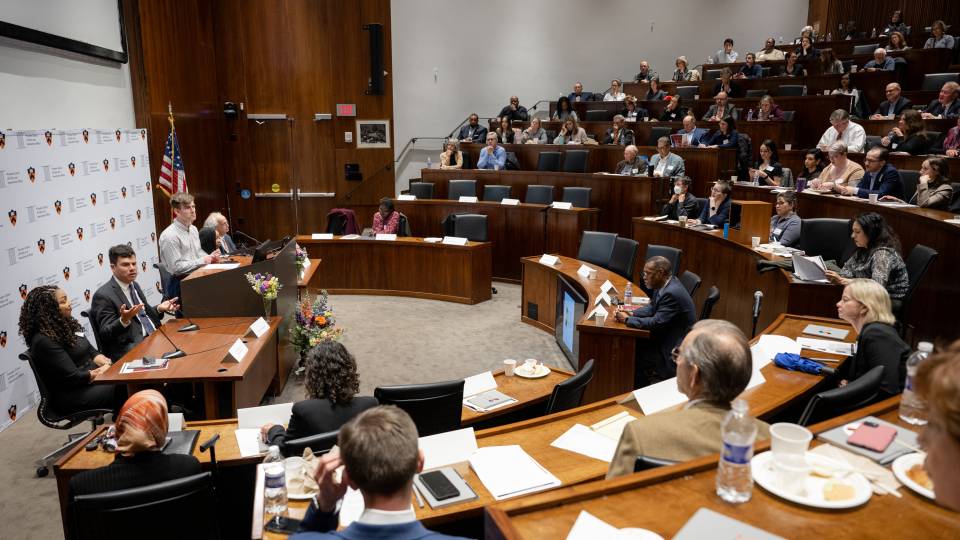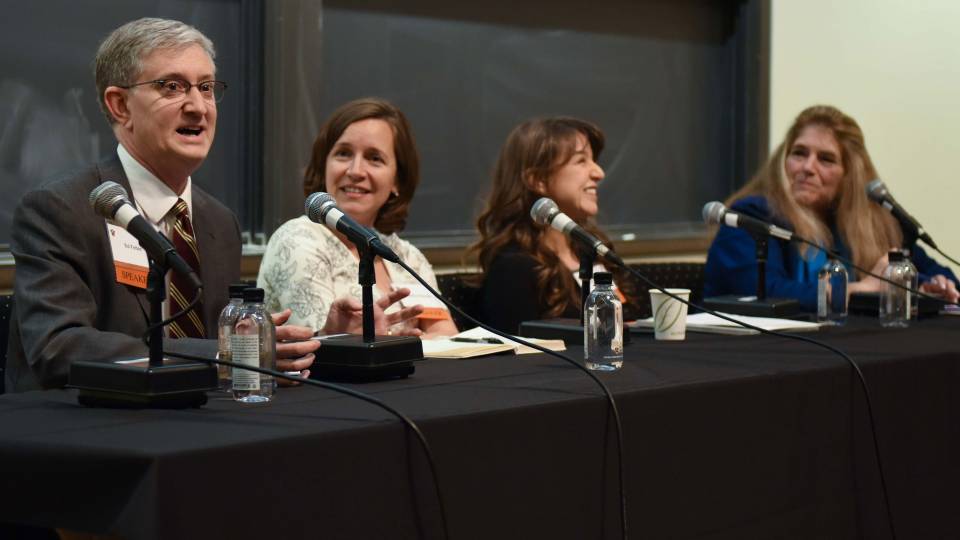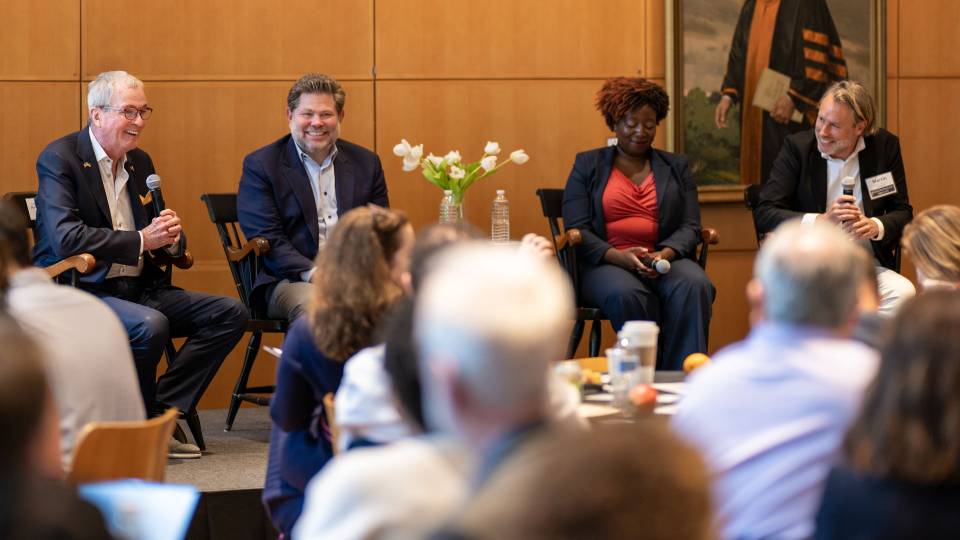Panel discusses trust in government
"In Government We Trust?" was the question at hand during the University's annual "Symposium on New Jersey Issues" Friday morning. Panelist Nick Acocella did not hesitate with his answer. "Do we trust government? No," he replied. " Should we trust government? Now, that's a harder question."
Acocella, who has edited and published Politifax: A Weekly Electronic Newsletter on Politics in New Jersey since 1997, argued that our current system was built upon Americans' extreme distrust of government following the Revolutionary War, and therefore is inherently untrustworthy.
A panel of nine speakers with academic and professional expertise in New Jersey government opened Friday's symposium. Keynote speaker Clifford Zukin, director of the Center for Public Interest Polling at Rutgers University's Eagleton Institute of Politics, opened his discussion with two seemingly contradictory realities: We, as American citizens, strongly believe that the values of our political system are just and that our government will, in the long run, take care of us. Just as strongly, citizens distrust government's basic daily function and believe that political officials do not necessarily act in our best interests.
"The citizenry has low day-to-day trust in its government," said Zukin, "but high end-of-the-day trust." Zukin laid the blame on the negativity with which the media distribute information about politics, as well as civic education's failure to teach children about the nature and purpose of politics.
The panelists who responded fell generally into three camps: those who maintain that this distrust is the fault of government actions, the media's portrayal or the public's involvement.
Barbara Lawrence, cofounder and executive director of New Jersey Future, blamed government officials for a tendency to "overpromise" that creates a "gap between rhetoric and reality." Judy Shaw, a senior partner at Hodes Shaw Bodman Gluck and former chief of staff for Gov. Christine Todd Whitman, said government isn't doing enough to educate the public about how its processes work. "When government keeps its lamp under the bushes," Shaw said, "it keeps the citizenry in the dark."
Michele Tuck-Ponder, president of Ponder Solutions and former mayor of Princeton Township, said people of color, women and immigrants have had reason to mistrust government in the past, and this lack of trust is keeping them from participating now. "It is the challenge for those in office today to understand and deal with the mistrust and fear created years ago," she said.
Other panelists held the media responsible. Ingrid Reed, director of the Eagleton New Jersey project at the Eagleton Institute of Politics at Rutgers University, said the media atmosphere makes it impossible for political consumers to get unbiased information.
William Watson, executive director of the John S. Watson Institute for Public Policy at Thomas Edison State College, said the media paint government in a bad light. "It's the messages that we send to people that cause them to think that government is not doing the right thing," Watson said. "We need to figure out how to get the good stories out to people, too."
However, Roland Machold, former New Jersey state treasurer, insisted that before we ask if we trust in government, we must first ask if we trust ourselves, since a government is merely a reflection of its people.
Finally, John Weingart, associate director at the Eagleton Institute of Politics at Rutgers University and a former New Jersey state official, said that the public has a habit of handing the most unsolvable problems to the government and then criticizing it when it fails to create miracles.
The discussion was followed by a response from a panel of New Jersey legislators later in the morning. The event was held in Dodds Auditorium and sponsored by the Princeton University Office of Community and State Affairs and the Woodrow Wilson School of Public and International Affairs.
Contact: Marilyn Marks (609) 258-3601



